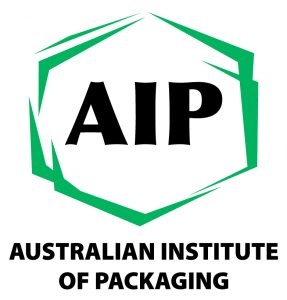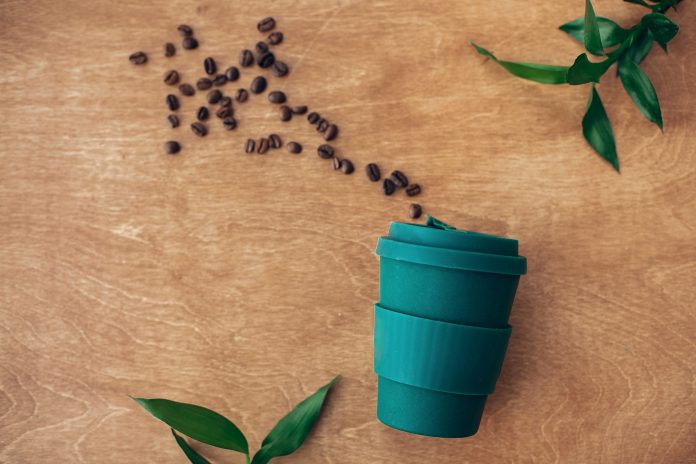
Australians love coffee; whether sipping it in a cafe, watching a friend proudly make you a latte on their ‘new’ machine, or ordering coffee pods to make your favourite blends at home.
By Australian Institute of Packaging Executive Director Nerida Kelton.
Buying behaviours have also changed and consumers expect more from their coffee. Coffee must be sustainable inside and out, starting with the way it is grown, sourced, staffed, manufactured and more recently how it is packaged.
Coffee packaging needs to have all the necessary functional barrier properties to maintain optimal freshness and shelf life, be airtight, protect from sunlight, be durable; all the while offering the lowest environmental impact.
Three innovative coffee packaging designs that stood out at the 2021 Australasian Packaging Innovation & Design (PIDA) awards that tick all the boxes are SIPP Instant, Melbourne Coffee and PodPress Capsule System.
SIPP Instant
As a premium instant coffee company SIPP Instant wants to be accountable for the future of our planet, along with producing the best functional beverages on the market. The company has created a different product to the traditional instant category which is totally organic and Fairtrade. The products contain heat resistant probiotics, complex healthy carbohydrates for slow energy release and premium freeze-dried Columbian coffee.
The new SIPP Instant packaging was designed to elevate the functionality of the brand and features an ABA certified home compostable internal film. The principal raw material for its cellulose, is a renewable raw material from eucalyptus trees in South America. The cardboard exterior packaging is made of 100% recycled cardboard and non-toxic inks. The cardboard box features a window to show the product and the compostable film inside, to appeal to the customers curiosity. Each panel of the box has purpose; instructions/process of making the product, health benefits and ingredients, and messaging around the company’s sustainable practices.
SIPP Instant is aware that its product is a new concept, so wanted its packaging design to be easy to understand for new customers. The new packaging colour palette is eye-catching and contrasts with the dark colour palette traditionally used for instant coffee.
The new design has not only enhanced functionality but has added value to the brand, as it remains aligned with the ethos and environmental values of the business. The new packaging is sturdier and more suitable for retail shelves and now offers SIPP Instant more opportunity to expand in the wholesale and distribution sectors.
SIPP Instant was recently awarded Gold in the PIDA Awards – Beverage Design of the Year category.
Melbourne Coffee (Cyclpac)
The Melbourne Coffee concept evolved from a desire to challenge the space of flexible packaging and create a mono structure material for coffee. The innovative solution is a recyclable, sustainable solution for coffee that also offers barrier to oxygen and vapour. Cyclpac has developed a packaging solution that could change traditional approaches in the Coffee industry for good, replacing ‘mixed’ laminate packaging materials.
The packaging is 90% LDPE, has a technical barrier to gas and vapour, a Mono structure lamination, BOPE, 7 Layer high barrier coextrusion with EVOH, reverse or surface printed. Developing the sealant layer to hold the release valve internally was essential to the development and required some variant testing. When producing a 90% PE mono structure, the resistance to heat offered by the BOPE was critical to product performance and success.
The material (Mono structure PE with barrier to Vapour and Oxygen) is recyclable and complies with the Australasian Recycling Labelling Program in ANZ and the sister-program called OPRL in the United Kingdom.
The Melbourne Coffee packaging encourages consumers to ‘Make a Difference’ and to ‘Recycle Me’. To Melbourne Coffee, the packaging is as important as the coffee.
Melbourne Coffee (Cyclpac) was recently awarded Gold in the PIDA Awards – Sustainable Packaging Design of the Year – Recycle category.
PodPress Capsule System (REFLO)
The lightweight, compact PodPress Capsule System has been designed as a sustainable alternative for those who drink their coffee from in-home machines that use pods. The PodPress offers sealed packaging of ground coffee in the form of completely re-usable capsules and 100% recyclable foil seals. Podpress gives you freedom to choose the capsule contents, you can refill any number of capsules and coffee types, install a new cover and store capsules for future use.
The aluminium foil closure is 100% recyclable and if balled up to sufficient size –approximately 30mm diameter – will be captured by recycling streams. The PP capsule bodies that carry the ground coffee are easily cleaned and reusable indefinitely. If desired, the capsules can be packed together and in packs of nine are easily captured in the recycling systems of cities, once again diverting them from the waste stream and landfill.
The used coffee grounds are readily removed from the capsules, and used for garden composting, or simply spread on the topsoil, providing an inert protective layer for home garden plants. The system itself can be produced using recycled material to complete its participation in the circular economy. The Podpress reusable and resealable coffee capsule system captures all the plastic packaging for capsule-based coffee usage and diverts it from landfill completely.
Given that Australians use more than three million coffee capsules per day, uptake of the Podpress system by even a small proportion of capsule users will make a significant reduction of spent capsules ending in landfill. REFLO believes that anything we can do to divert used capsules from landfill will make a significant difference.
PodPress Capsule System – Reflo was recently awarded a silver in the PIDA Awards – Sustainable Packaging Design of the Year – Reuse category and a bronze in the Beverage category.
Coffee is not only one of the most traded agricultural commodities in the world, but it is also a favourite pastime for many people. Next time you are buying your coffee look out for brands that are making a sustainable difference inside and out.
 About Nerida Kelton MAIP
About Nerida Kelton MAIP
Nerida Kelton has worked in the packaging industry for more than 23 years and is the Executive Director for the Australian Institute of Packaging, which is the peak professional body for packaging training and education in Australasia. Nerida is passionate about sustainable and circular packaging design and the ‘Save food packaging design’ movement and is the lead for the Save Food Packaging Consortium project within the Fight Food Waste Cooperative Research Centre and was the packaging representative on the Department of Agriculture, Water and the Environment’s National Food Waste Strategy Steering Committee. She invests her time educating the industry on the important role that packaging plays in minimising food waste and how designing ‘save food packaging’ can make a difference.
About Australian Institute of Packaging
The Australian Institute of Packaging (AIP) is the peak professional body for packaging education and training in Australasia, helping to shape the careers of generations of packaging professionals, from packaging technologists to international packaging business leaders, along with a host of people in associated disciplines, such as sales and marketing, purchasing, production and environment.
The AIP was founded in 1963 in response to a need for packaging technologists to interact and provide a professional identity for individuals within the packaging industry. Having served the industry for more than 55 years, the AIP is the only professional body designed to provide professional and personal development to all levels of the packaging industry.





